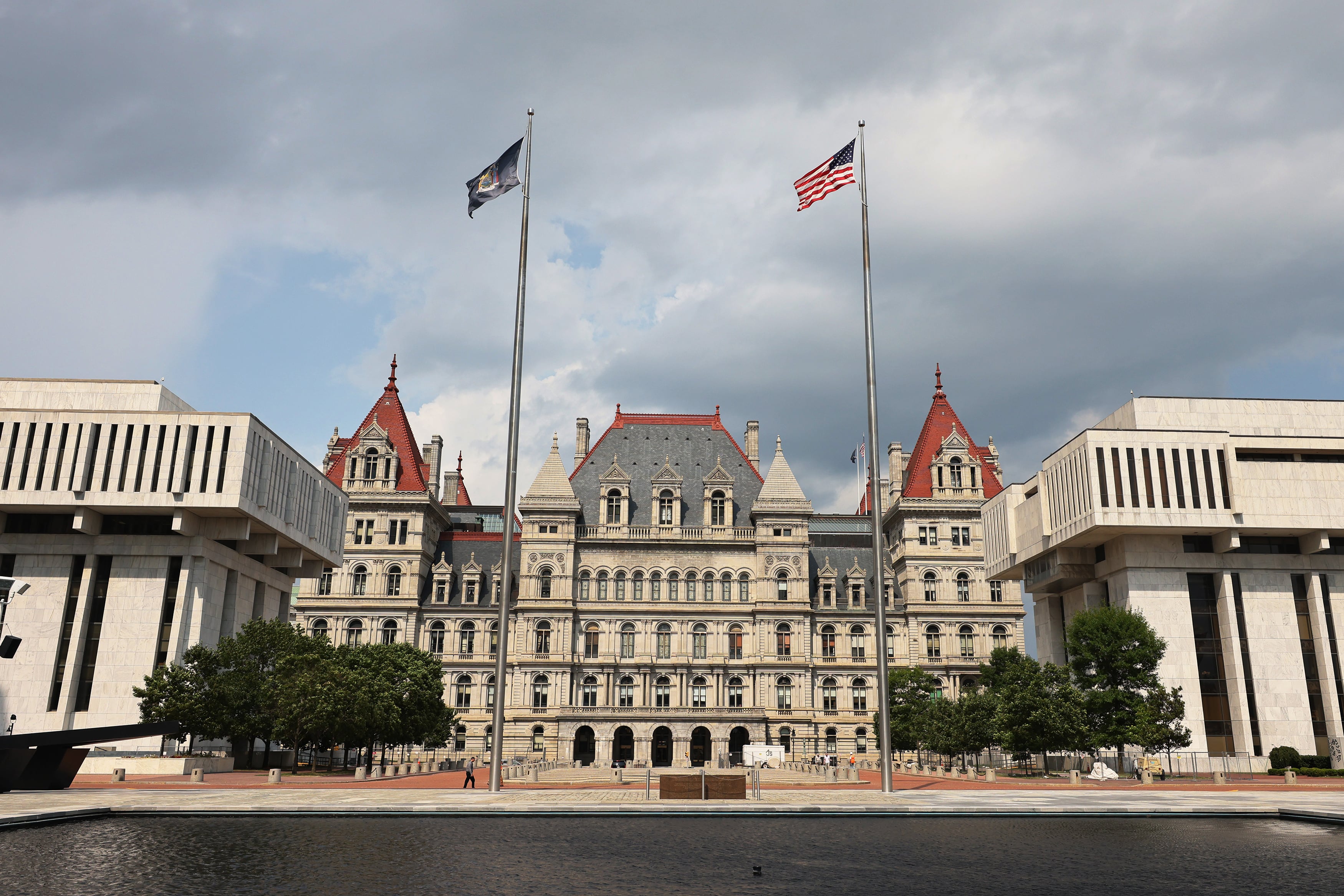Sign up for Chalkbeat New York’s free daily newsletter to keep up with NYC’s public schools.
Lawmakers, parents, and school safety advocates rallied in Albany on Tuesday, calling for the passage of legislation that would reduce the number of school lockdown drills required under New York state law.
It’s the culmination of a multi-year effort by advocates who want changes in state law, which currently requires public schools to conduct at least four lockdown drills each year. Proponents of the bill say that number was arbitrarily chosen and that conducting so many drills harms student mental health without providing clear safety benefits.
The bill — recently amended through negotiations — would lower the required number of drills to two, while still allowing schools the option to conduct additional drills. It would also mandate that drills are conducted in a “trauma-informed, developmentally, and age-appropriate” manner, with accommodations for students with disabilities, training for educators, and advance notice provided to school staff and parents.
On Tuesday, state Sen. Andrew Gounardes and Assembly Member Jo Anne Simon, the sponsors of the bill, joined other lawmakers, advocates, and mental health experts to call for changes to the state’s “excessive and ineffective” lockdown drill requirement.
“We don’t want kids to grow up normalizing and believing that this is just an everyday fact of life,” Gounardes said. “Lockdown drills are supposed to prepare students for an active shooter in the event that one enters the school, but our current approach is deeply traumatizing for kids — not to mention teachers and parents — and simply is not making them safer.”
Simon added there was no data to suggest that lockdown drills are effective, or to justify requiring four drills, when the state enacted its law in 2016.
“There is no excuse for us traumatizing and re-traumatizing our kids because we are worried,” she said. “We have to find a way to solve this problem that doesn’t put the obligation on them.”
As of 2016, lockdown drills occurred in 95% of public schools in the U.S., with at least 40 states requiring them, according to Everytown for Gun Safety, a nonprofit that advocates against gun violence. But the organization has advised against conducting them, pointing to the “collateral consequences to school communities’ mental health and wellbeing.”
New York remains just one of a handful of states that mandate four or more lockdown drills per year — meaning its students can experience twice as many drills as those in other states, according to an analysis from the Trace.
“Excessive drills increase anxiety and depression in children of all ages,” said Sheffali Welch, a member of Moms Demand Action and a New York City parent. “Haven’t our kids been through enough?”
There are some signs that concern over the impact of the drills is gaining traction in Albany. At a meeting last month, the New York Board of Regents discussed proposed amendments to state regulations related to school safety planning — requiring schools to establish procedures for notifying parents about drills and mandating that drills be conducted in “a trauma-informed, developmentally and age-appropriate manner.”
Though state lawmakers initially sought to lower the number of mandated drills to one and offer parents the ability to opt their children out of drills, both provisions were changed during negotiations over the bill.
Still, advocates see the growing momentum to pass the legislation as a win, and lawmakers noted Tuesday they’re hopeful the bill will pass this legislative session.
“Kids are gaining from this,” said Robert Murtfeld, a Manhattan parent who has been advocating for the law for years, in a phone interview ahead of the press conference. “It’s the best solution for everybody to move forward with this in New York.”
Julian Shen-Berro is a reporter covering New York City. Contact him at jshen-berro@chalkbeat.org.







